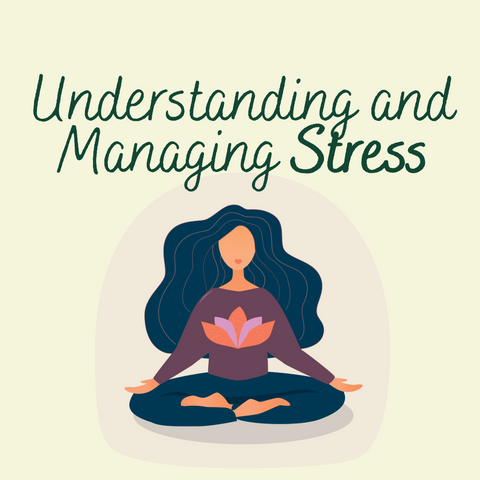April marks Stress Awareness Month, a time dedicated to shedding light on the impact of stress and the importance of managing it effectively. Stress is an inevitable part of life, but learning how to handle it can improve both mental and physical health. In today's busy world, it's more important than ever to understand stress and find ways to manage it effectively.
The Effects of Stress on the Body
Stress isn't always negative—at times, it can serve as a motivator. However, excessive stress can take a toll on overall well-being. When the body perceives a challenge or threat, it triggers a heightened state of alertness. Ideally, once the challenge passes, the body should return to a balanced state. However, ongoing or overwhelming stress can prevent this recovery, leaving individuals feeling persistently anxious, fatigued, or burnt out.
In Ireland, 64% of people report feeling stressed at least once a week, with this figure rising to 80% among those under 35, and higher rates reported among women. Additionally, one in four people feel stressed daily, with this number increasing to 34% among younger adults. Seasonal stress is also a factor, with 56% of people feeling more stressed in the lead-up to Christmas, a figure that rises to 62% among women and those aged 35-54.
It's clear to see that we need to understand stress more and find ways to help ourselves manage stress to benefit us. Recognising stressors and taking proactive steps to manage them is essential for overall well-being.
Practical Strategies for Managing Stress
1. Recognise Stress Signals
The body provides signals when stress levels rise. These may include difficulty concentrating, muscle tension, headaches, restlessness, irritability, or withdrawal from activities. In Ireland, 71% of people report stress affecting their mood, with this number climbing to 77% among women. Additionally, 61% report stress disturbing their sleep, with women again being more affected (68%). Understanding these cues allows individuals to address stress before it becomes overwhelming. Simple techniques such as deep breathing, stretching, taking a short walk, or journaling can help reduce tension and restore balance.
2. Prioritise Self-Care
Taking care of yourself is not a luxury—it’s a necessity. Setting aside time for self-care can strengthen resilience against stress. Establishing a routine that includes exercise, balanced nutrition, relaxation, and sufficient sleep can help regulate emotions and improve overall health. Running is the most popular activity for alleviating stress, particularly among men and younger adults. Engaging in hobbies, reading, listening to music, or practicing mindfulness can provide a mental reset and promote a positive mindset.
Many people also turn to supplements to help manage stress, with Multivitamins and Vitamin D being the most used, followed by Ashwagandha, L-Theanine, B Vitamins (especially B6 and B12), and Magnesium. Ensuring proper nutrition and supplementation can support overall well-being during stressful periods.
3. Establish Healthy Routines
Having a structured daily routine can create a sense of stability and control, reducing the impact of stress. Setting aside time for planning, prioritising tasks, and keeping a consistent sleep schedule can help navigate daily responsibilities with greater ease. Implementing small adjustments, such as setting boundaries or allowing time for breaks, can make a significant difference.
4. Stay Connected
Maintaining social connections is a key part of stress management. Reaching out to friends, family, or support groups provides a sense of belonging and emotional support. Technology offers many ways to stay in touch, whether through phone calls, video chats, or social media. Talking to someone about challenges can help process emotions and gain valuable perspectives.
5. Reframe Challenges
Changing the way stressful situations are perceived can make them more manageable. Instead of viewing inconveniences as frustrations, try to see them as opportunities—for example, a long commute could be a chance to listen to a podcast or enjoy music. Practicing gratitude and focusing on positive aspects of life can also shift perspectives and reduce stress.
6. Seek Support When Needed
If stress starts to interfere with daily life, seeking professional support is a wise step. Speaking with a healthcare professional can provide guidance on managing stress effectively. If stress leads to unhealthy coping mechanisms or affects relationships and work performance, professional support can offer tailored strategies for improvement.
Taking Steps Toward a Healthier Mindset
Stress is a natural part of life but managing it effectively can make a world of difference in overall health and happiness. By recognising stress triggers, adopting self-care practices, staying connected, and seeking help when needed, individuals can build resilience and support a healthier, more balanced lifestyle.
Shop the Macánta Nutrition Stress Support Bundle Here





